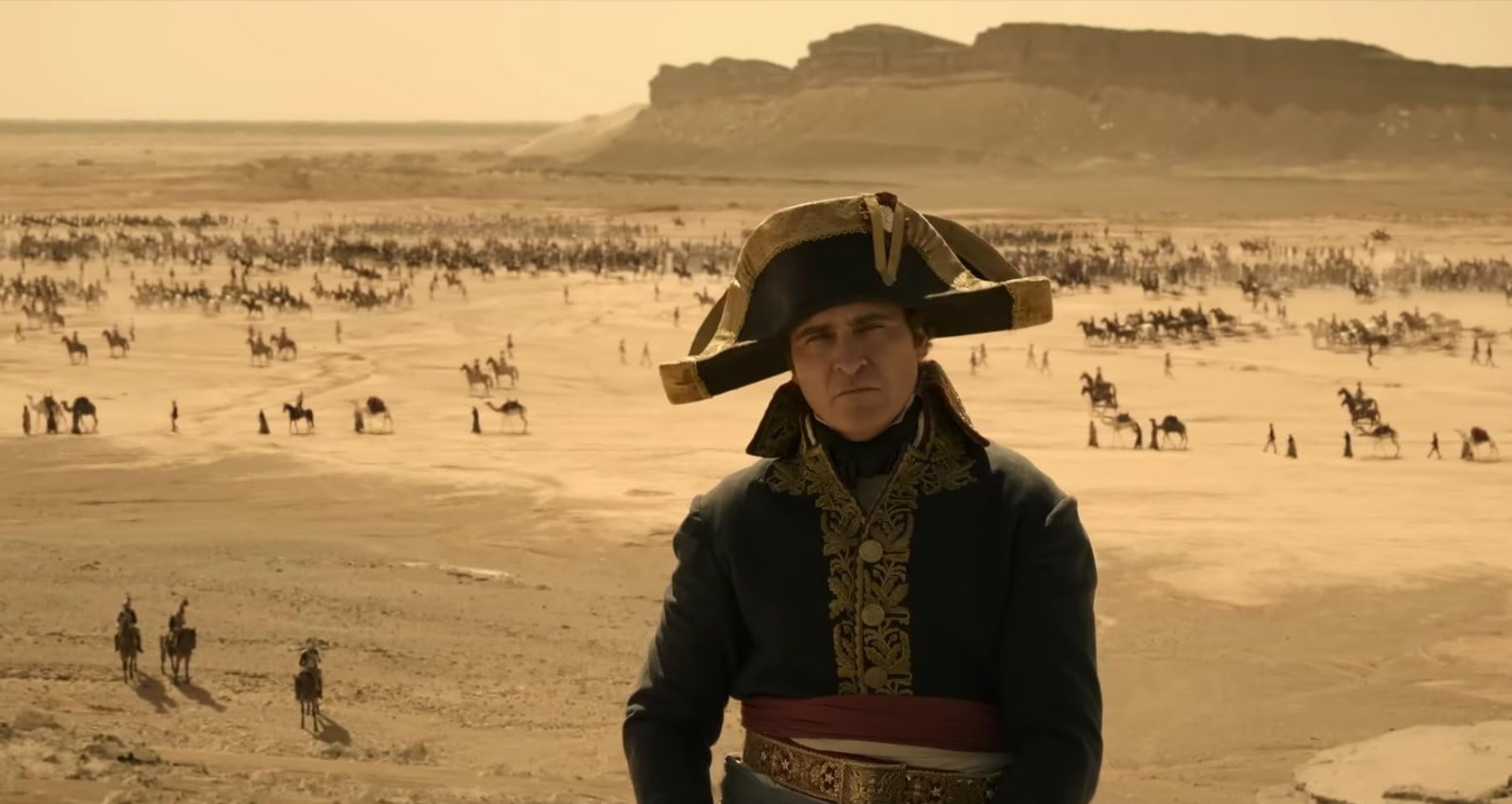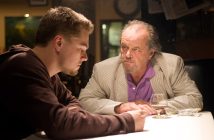
While I’m not a fan of the movie, there’s a line in 2005’s “Charlie and the Chocolate Factory” that has stayed with me: “Candy doesn’t have to have a point. That’s why it’s candy.” That quote kept popping up in my head while watching “Napoleon,” the latest from revered director Ridley Scott. Make no mistake, “Napoleon” is not candy—it’s not enjoyable for its own sake or some sort of sweet reward that stimulates the senses. But Scott’s new film does seem to be lacking a point, to the extent that I kept searching for some greater meaning or a reason for it to exist. It’s technically proficient but emotionally beige, a sort of neutral existence that doesn’t really check any boxes. It’s not a methodical review of historic events, often indulging in apocryphal stories rather than what actually happened. But it’s not some impassioned grand tale of legend, either, attempting to ground itself in the world of Bonaparte. At the same time, it’s also not some examination of the inner world of the would-be world conqueror, making his motivations and processes an inconsistent and rarely definable quality of the character. Is that the point? That the real Napoleon can’t be known? That life is a mix of myth and mundane? I genuinely have no clue… and it is vexing. After many years of many filmmakers attempting to take on the story, “Napoleon” arrives horrifically inert and painfully tedious where its 158-minute runtime often feels like 158 days.
The movie centers on Napoleon Bonaparte (Joaquin Phoenix) and his rise through the ranks of the military (and French society) through his various victories for the aristocracy. While he earns many wins on the battlefield, almost all on the backs of enormous casualties on his own side, it’s the infighting among the constantly shifting ruling class that presents opportunities for the successful general. It culminates in his ascension to emperor before incurring multiple defeats and exile (twice over). (Spoiler alert, I suppose, but you’ve had over 200 years to know the arc of his story.) Meanwhile, during all this tumult and ambition, Napoleon falls for Josephine (Vanessa Kirby), a former noble that fell into the prisons during the French Revolution and eventually becomes Bonaparte’s bride. There are many ups and downs of the relationship, much of it around affairs and a lack of Josephine providing an heir for the man who would be king of the world, but Napoleon is utterly enchanted by this woman…albeit showing it in his own way. These two tracks—political plots and his homelife—are intertwined in various ways that reveal a complicated man who has basic drives (love, sex, ambition, jealousy, pride) but shows them in increasingly odd ways. Is that the point? That this looming figure is just like us who happens to benefit from being at the right place at the right time while remaining simple if emotionally awkward?
I just don’t know. Nothing in “Napoleon” is consistent, except for how lethargic everything feels. The inner workings of the court should be rife with intrigue, or drama, or comedy, or something. Instead, it’s a rote rotation of characters as power transfers between various members over the decades. That tumultuous marriage with its passionate romance and clashes should be brimming with emotion and reveal something about the characters or the historical figures or something. But the script, from writer David Scarpa, does very little with these moments. There are some bits of comedy with Napoleon making quips or being a randy husband. There’s some pathos as Josephine struggles as she is gradually pushed aside (yet still retained and fairly controlled by her eventual ex-husband). But all of it is just occasional and slight, and never feels like a piece of a cohesive whole. The fact that “Napoleon” has a singular author is astounding because this feels like an exquisite corpse where each section is passed to another writer with a constant mixing of emotions and meanings. Is that the point? That a person’s life isn’t part of some grand tableau but an inconsistent melding of the complementary and the contrary?
“Napoleon” may not be profound, but surely the man behind “Blade Runner,” “Gladiator,” and so many other grandiose titles, delivers impressive set pieces, right? For even with his less-than-great entries (like “Prometheus,” “The Counselor,” or “Exodus: Gods and Kings”), Ridley Scott produces some incredible spectacle and impact sequences. Unfortunately, that is not the case with “Napoleon,” with most of those big battles not feeling epic or producing much in the way of grand scope. The scale is there, with many extras (or at least digital ones) and great costuming and era-appropriate props who mostly get gruesomely slaughtered in the abattoir of war. But the blocking/staging isn’t interesting nor are there any particularly memorable images from any of these clashes. And the lack of emotional investment in the lead or any of the nameless supporting soldiers means that nothing really has much of an impact. Is that the point? That war isn’t meant to be a visual delight or there are billions of nameless faceless who have sacrificed themselves at the altar of ambitious, petty men?
This lack of engaging imagery extends beyond the battlefields to the courts and balls and palaces. Again, the film delivers beautiful costuming and some cool recreations of sites. But “Napoleon” is shot so boringly with uninteresting lighting and what feels like a somewhat obscuring scrim that dials down all the interest and brilliance of each scene. DP Dariusz Wolski is better than this. The man shot 1998’s “Dark City” which is a sumptuous feast for the eyes with interesting set-ups, lighting, and camerawork. And he’s done a lot of great work since (collaborating often with Scott). But one would think that there’d be a focus on natural light to mimic the era and ground it in the mundane—especially with camera technology being such that it doesn’t need strong light sources to capture these moments. Or it would be bathed in glorious lighting to properly establish these legendary figures in these momentous times. Or switching back and forth somehow to say something, anything, about the duality or relationship between these two worlds or something. Is that the point? That it’s all just awash in uninteresting hues because this is just life, no matter the outsized person in the middle of it?
It’s quite possible I just didn’t understand “Napoleon.” I got the plot points and followed along with the narrative and character development. But whatever was the larger message that Scott and crew sought to explore feels non-existent. This lavish production never feels like an incredible story, nor does it ever feel particularly intimate. Truthfully, “Napoleon” rarely feels like anything; perfunctory emotions that are adequately portrayed by talented actors adrift in a sea of tedium. It’s a literal epic, crossing time and geographies, but is an utterly hollow exercise that leaves audiences with one resounding question: what was the point?
Starring: Joaquin Phoenix, Vanessa Kirby, Tahar Rahim, Mark Bonnar, Rupert Everett, Youssef Kerkour
Director: Ridley Scott
-
4


